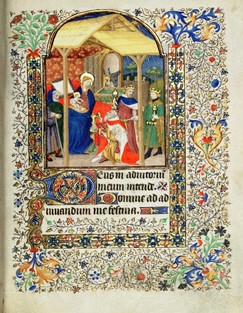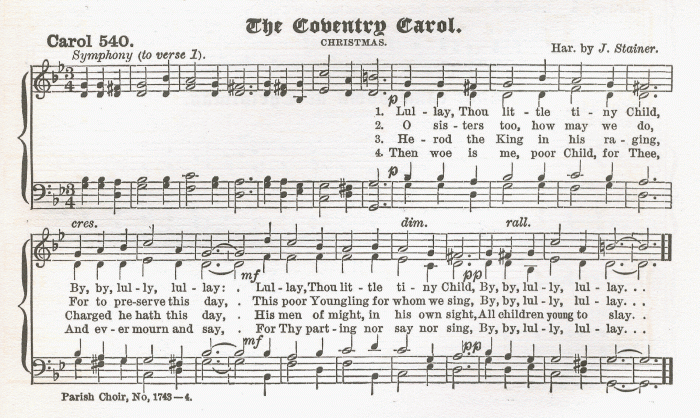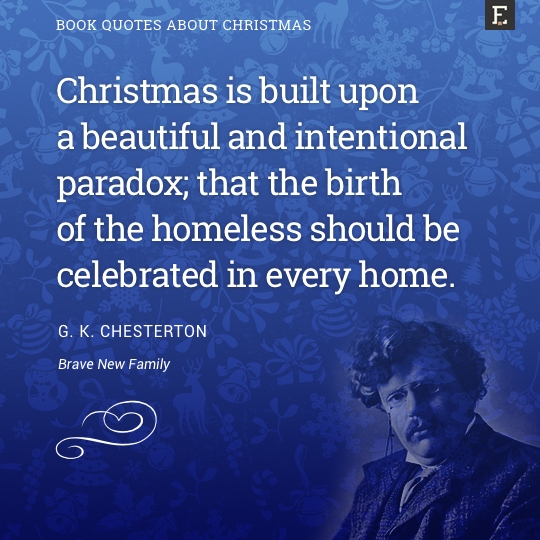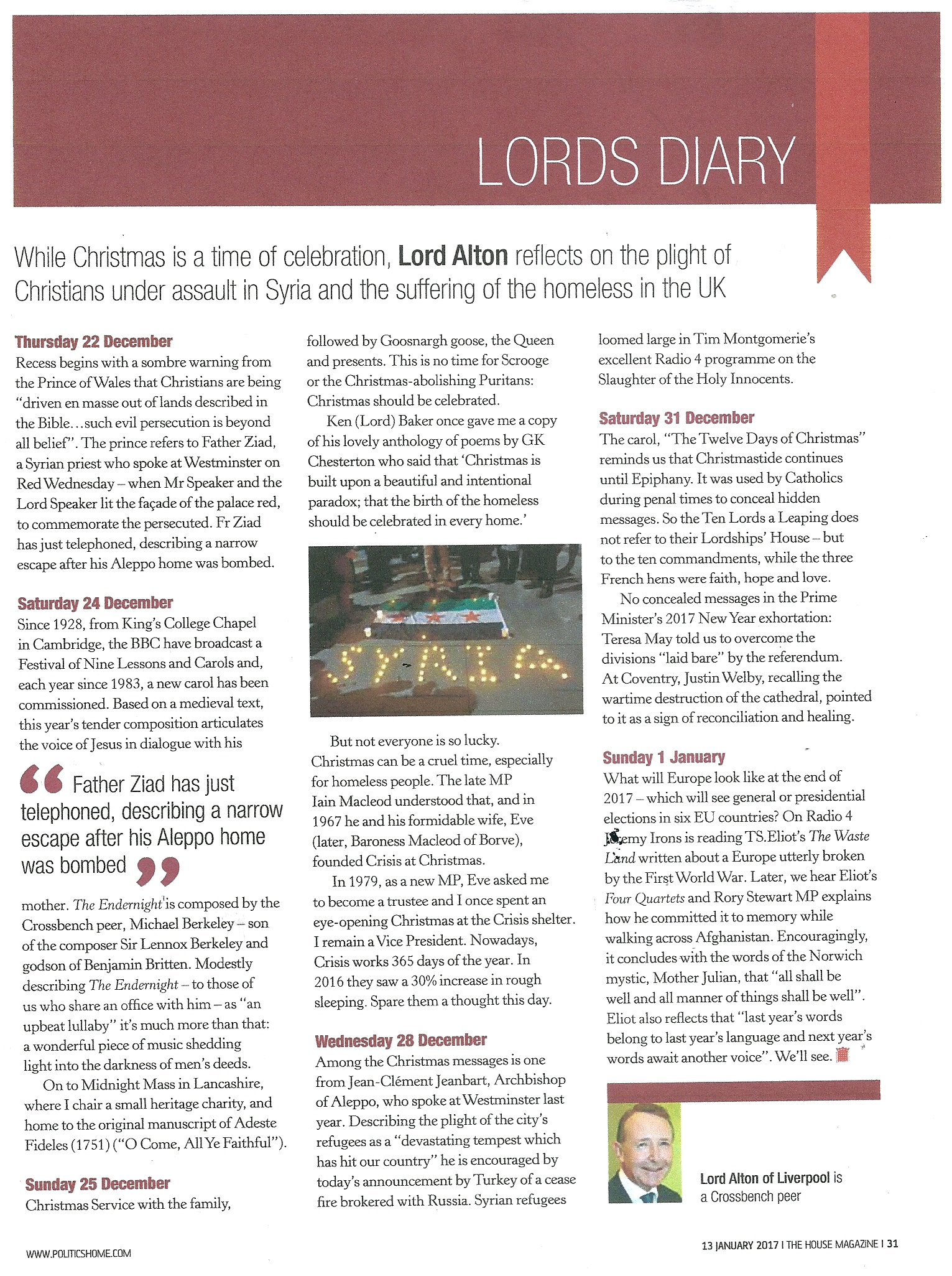In “All Things Considered” Chesterton wrote “What life and death may be to a turkey is not my business; but the soul of Scrooge and the body of Cratchit are my business”.
Elsewhere he said that “The great majority of people will go on observing forms that cannot be explained; they will keep Christmas Day with Christmas gifts and Christmas benedictions; they will continue to do it; and some-day suddenly wake up and discover why.”
It is in the fervent hope that the amazing story that lies behind the cribs, trees, presents, and turkeys, will be known again that, five-years-ago the Christian Heritage Centre project was established.
The charity, which is based in the beautiful grounds of Stonyhurst College, is a wake-up call to Britain to remember our Christian story and rediscover what has been lost.
The Collections of beautiful objects, books, and sacred artefacts and, even more so, the inspirational Christian men and women who have gone before us, have so much to teach us.

From The Book of Hours in the Collections at the Christian Heritage Centre at Stonyhurst
This Christmas , following the rededication of the restored museum and libraries, work is forging ahead on Theodore House – which, available to parishes, schools, groups and individuals. It will open in the summer.
One of the rooms in Theodore House will be named for G.K.Chesterton – which is set me thinking about how much the celebration of Christmas meant to him.
Chesterton’s insistence that we mustn’t be half hearted in our celebrations strongly contrasted with the prohibitions of Oliver Cromwell and the Puritans.
The seventeenth century Puritan-dominated Parliament said Christmas was “a popish festival” with no biblical justification and replaced it with a day of fasting – and it took King Charles II, in 1660, to restore the festivities. Poor Robin’s Almanack celebrated the restoration: “Now thanks to God for Charles return; Whose absence made old Christmas mourn; For then we scarcely did it know; Whether it Christmas were or no”.
But the Puritans were mild compared with what followed.
The atheistic French revolutionaries banned Christian Christmas services and in a foreshadowing of some of our politically correct twenty-first century ideologies the three kings cake had to be renamed “the equality cake.”
By the twentieth century their atheistic Soviet heirs had outlawed Christmas celebrations – encouraging school children to spit on crucifixes – while Joseph Perry ( “How the Nazis co-opted Christmas: A history of propaganda”) says “because Nazi ideologues saw organized religion as an enemy of the totalitarian state, propagandists sought to deemphasize—or eliminate altogether—the Christian aspects of the holiday” and, consequently “propagandists tirelessly promoted numerous Nazified Christmas songs, which replaced Christian themes with the regime’s racial ideologies.”
In England, in our own times, Christmas-deniers have tried to rebrand the festival by calling it Wintermas, or some such, and wishing visitors or customers “Happy Holidays” – anything but Christmas.
The contemporary festivities that many of us will enjoy had their origins in the reign of Queen Victoria – inspired by the writings of Charles Dickens. Chesterton argued that Dickens saved Christmas for England.
He also insisted that beyond the raised glass and the fatted bird, there is a literally an earth-shattering story that must be told.
I particularly like his paradoxical call to give “Glory to God in His Lowest” and his description of “ the hands that had made the sun and stars were too small to reach the huge heads of the cattle.”
And the Word became flesh and dwelt among us.
I often think of the children’s picture book where the mythical Santa Claus is reading to the real baby Jesus the story of the baby’s own birth. “And how does it all end?” the baby asks.
We know that it doesn’t end in the stable or with the visit of the Magi; and we know that even within days of His birth, the life of Jesus is threatened by Herod and his butchers, sharpening and their knives even as the Son of God is being born.
In “The God In The Cave” Chesterton, points to the way evil is always waiting in the wings with a particular “detestation of innocence”:
“There was” said Chesterton “present in the primary scenes of the drama that Enemy that had rotted the legends with lust and frozen the theories into atheism, but which answered the direct challenge with something of that more direct method which we have seen in the conscious cult of the demons.”
Of Herod, he “seems in that hour to have felt stirring within him the spirit of strange things… Everyone knows the story; but not everyone has perhaps noted its place in the story of the strange religions of men… a seer might perhaps have seen something like a great grey ghost that looked over his shoulder…The demons in that first festival of Christmas, feasted also in their own fashion.”
And those demons continue to feast, in their own fashion, today.
I cannot reflect on the slaughter of the Holy Innocents, brilliantly commemorated in the carol, “In Rama There Was a Voice Heard” without thinking of the nearly nine million of our babies whose lives have been ended in their mother’s wombs.
In the words of the sixteenth century Coventry Carol, written by Robert Croo, in 1534, for the traditional Coventry Plays:
“Herod, the king, in his raging,
Charged he hath this day
His men of might, in his own sight,
All young children to slay.”

This lament of a mother for her child who is doomed to die might have been written for a country in which one child in the womb loses its life every three minutes of every hour of every day.
This terrible loss of life is a great evil. In Britain like Rama there is nothing sentimental about the Christmas story and there must be a moment when we reflect on the brutal, violent world we have created.
“Then woe is me, poor Child, for Thee,
And ever mourn and say;
For Thy parting, nor say nor sing,
By, by, lullay, lullay.”
But we also know that in Bethlehem and at Calvary that although evil has its day, it does not triumph.
It’s why, this Christmas, we can joyfully rejoice with Chesterton’s Wise Men
“Hark! Laughter like a lion wakes
To roar to the resounding plain,
And the whole heaven shouts and shakes,
For God Himself is born again,
And we are little children walking
Through the snow and rain”.
And we can join with Chesterton in hoping and praying that our nation will “someday suddenly wake up and discover why” we are celebrating Christmas. And why we’re not doing it in a half hearted manner.
I hope that the Christian Heritage Centre and Theodore House will play their part in waking up our great but slumbering nation. Perhaps this Christmas you can give a gift to us achieve? But please help us in any way you can. Have a happy and holy Christmas.
The Christian Heritage Centre at Stonyhurst creates access to unique Catholic
collections – items which draw on this country’s Christian story. This registered
charity is currently creating accommodation for scholars, retreatants and those
wishing to deepen their Christian Faith.
Theodore House will be followed by a Visitors’ Centre which will enable parishes,
schools and the general public to have even greater access to these amazing
collections. To find out more go to www.christianheritagecentre.com or contact

“Christmas is built upon a beautiful and intentional paradox; that the birth of the homeless should be celebrated in every home….The great majority of people will go on observing forms that cannot be explained; they will keep Christmas Day with Christmas gifts and Christmas benedictions; they will continue to do it; and some day suddenly wake up and discover why.” – G.K.Chesterton
House Magazine Christmas Diary – 2016
lord-alton-lord-diary-jan-2017


